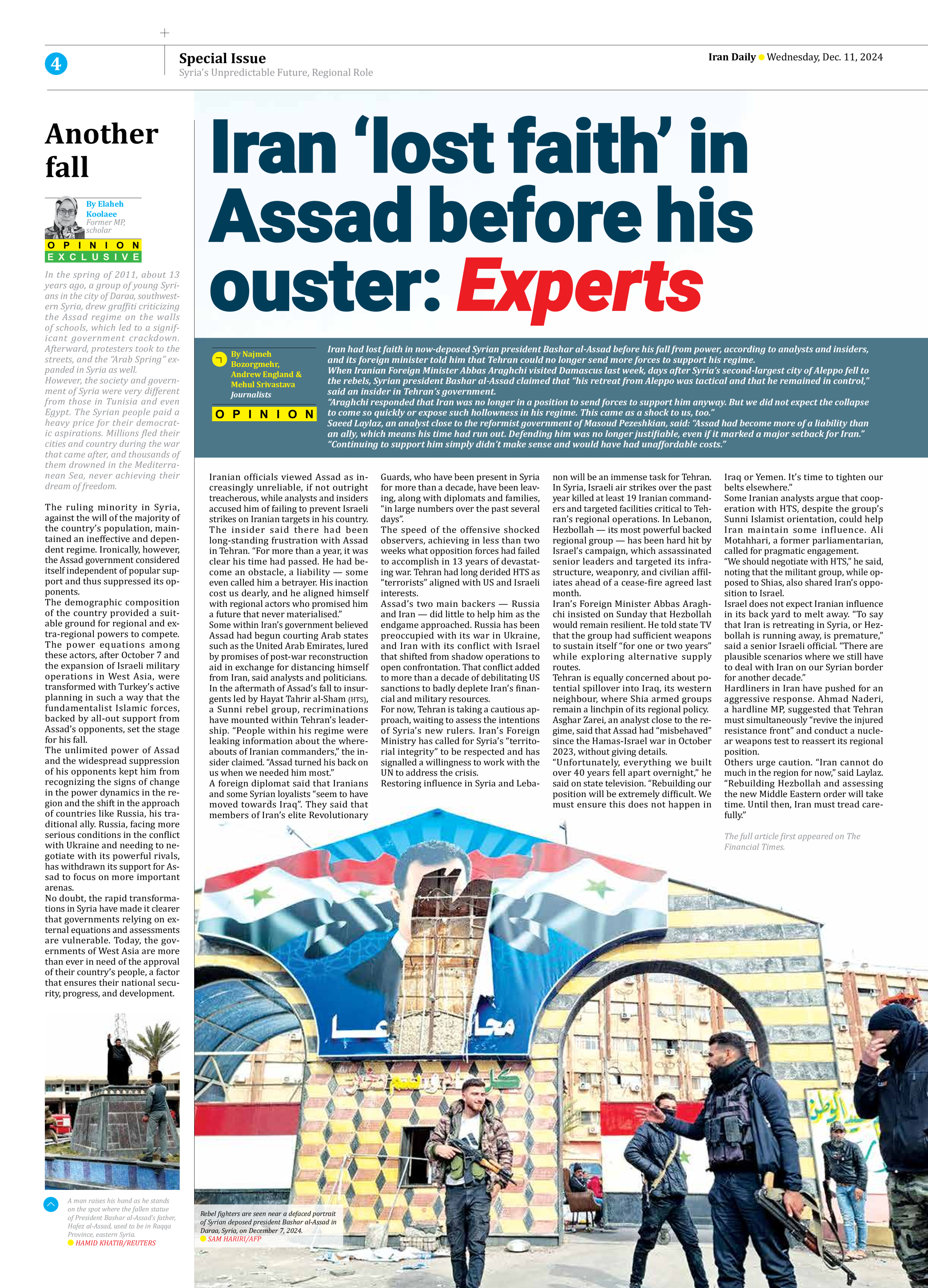
Another fall
By Elaheh Koolaee
Former MP, scholar
In the spring of 2011, about 13 years ago, a group of young Syrians in the city of Daraa, southwestern Syria, drew graffiti criticizing the Assad regime on the walls of schools, which led to a significant government crackdown. Afterward, protesters took to the streets, and the “Arab Spring” expanded in Syria as well.
However, the society and government of Syria were very different from those in Tunisia and even Egypt. The Syrian people paid a heavy price for their democratic aspirations. Millions fled their cities and country during the war that came after, and thousands of them drowned in the Mediterranean Sea, never achieving their dream of freedom.
The ruling minority in Syria, against the will of the majority of the country’s population, maintained an ineffective and dependent regime. Ironically, however, the Assad government considered itself independent of popular support and thus suppressed its opponents.
The demographic composition of the country provided a suitable ground for regional and extra-regional powers to compete. The power equations among these actors, after October 7 and the expansion of Israeli military operations in West Asia, were transformed with Turkey’s active planning in such a way that the fundamentalist Islamic forces, backed by all-out support from Assad’s opponents, set the stage for his fall.
The unlimited power of Assad and the widespread suppression of his opponents kept him from recognizing the signs of change in the power dynamics in the region and the shift in the approach of countries like Russia, his traditional ally. Russia, facing more serious conditions in the conflict with Ukraine and needing to negotiate with its powerful rivals, has withdrawn its support for Assad to focus on more important arenas.
No doubt, the rapid transformations in Syria have made it clearer that governments relying on external equations and assessments are vulnerable. Today, the governments of West Asia are more than ever in need of the approval of their country’s people, a factor that ensures their national security, progress, and development.







